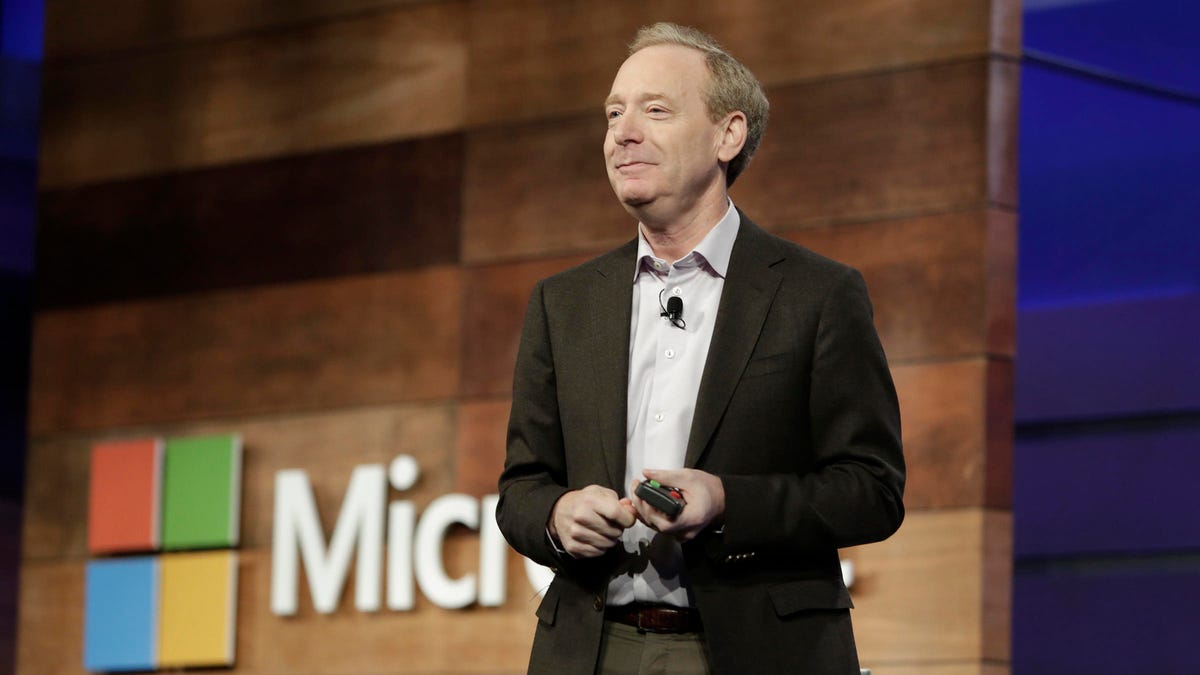Microsoft President: Facebook's Zuckerberg's testimony was smart
Speaking at the Code Conference, Brad Smith recounted Microsoft's own fight with US regulators two decades ago and how it changed the software giant.

Microsoft President and Chief Legal Officer Brad Smith.
When regulators came knocking on Microsoft's door two decades ago accusing the software giant of monopolistic practices, the company's President and Chief Legal Officer Brad Smith remembers the decision overwhelmingly from its leaders co-founder Bill Gates and then-CEO Steve Ballmer was to fight.
Now he says the right answer is to work things out.
"Every startup -- it takes an over exuberance, it takes a big ego to change the world. And then comes a moment when you're not a startup anymore," he said. "It takes courage to compromise."
By that measure, Smith said Mark Zuckerberg , who traveled to Capitol Hill last month to testify for more than 10 hours before three congressional committees over two days, did the right thing. "He said regulation may be in order," Smith noted.
Smith was speaking during Recode's Code Conference, which is being held this week in Rancho Palos Verdes, California. Two decades ago, Smith was part of the team who steered Microsoft through a grueling battle with US government regulators that ultimately led a judge to declare Microsoft was a monopoly in 2002, only to see the software giant settle the case in 2004.
Now Microsoft finds itself at odds with the government again, though this time it's over immigration policy. The software giant has joined many tech executives speaking out against President Donald Trump's efforts to change immigration.
"I think it's a huge problem," he said, adding that because The White House has been unable to strike deals with Congress on legislation that would resolve concerns around programs like the Obama-era DACA visa program for people brought to the US as children, or H1B visas for employees with special skills, he expects things to worsen for some Microsoft employees who rely on those programs to live and work in the US.
"The most important thing we need to do every day is stand up for [our] employees," he said.
Cambridge Analytica: Everything you need to know about Facebook's data mining scandal.
iHate: CNET looks at how intolerance is taking over the internet.



